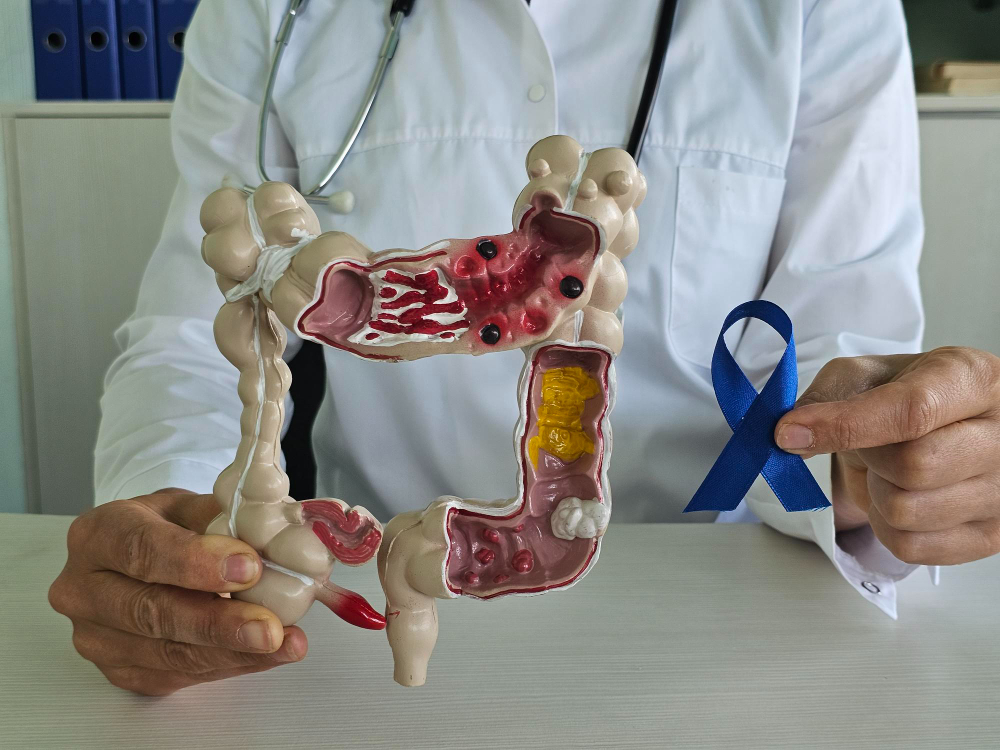Colorectal cancer is the second leading cause of cancer-related deaths in adults. However, it is additionally among the most easily identified and, in numerous cases, preventable cancers when routine screenings are maintained. March is colon cancer awareness month, and GI Alliance aims to provide the colorectal cancer facts that could help protect your overall health.
GI Alliance remains up to date on the latest in gastrointestinal (GI) health and provides support for patients and their families as they undergo diagnosis and treatment for colorectal cancer. If you would like to learn more about our physician-led network of gastrointestinal specialists and colonoscopy doctors near you, please contact a GI Alliance office in your community.
About colorectal cancer
Colorectal cancer is the uncontrolled growth of cells that starts in the large intestine (colon) or rectum. It may also be referred to as bowel cancer or colon cancer. The disease is extremely common, as 1 out of every 25 women and 1 in 23 men will be diagnosed with colorectal cancer at some point during their lifetime. As reported by the American Cancer Society, around 150,000 new cases of colorectal cancer were detected in 2021.
Symptoms of colorectal cancer
It might take around ten years for a premalignant polyp (growth) in the colon or rectum to turn into cancer. During the early stages, colorectal cancer is unlikely to present any apparent symptoms or other indications. If an individual is exhibiting symptoms of colorectal cancer, they will likely report:
Chronic diarrhea
- Blood in stool
- Pain in the abdominal area
- A change in bowel habits
- Unexplained weight loss
Should you or a family member notice any of these symptoms of colon cancer, contact GI Alliance promptly.
What are colon and rectal cancer risk factors?
While the exact cause of colon and rectal cancer remains unidentified, there are certain factors that appear to place some people at higher risk than others. Such risk factors are:
- Family history of colon cancer: Nearly 25 – 30% of patients who develop colorectal cancer have a family member who also has been diagnosed with the disease.
- Inflammatory Bowel Disease (IBS): Persons who have Crohn’s disease or ulcerative colitis have a higher chance of getting colon cancer.
- Age: Even though colorectal cancer can arise in younger people, approximately 88% of new cases diagnosed occur in persons over 50, but in recent years, there has been a tendency toward earlier diagnosis. As a result, this has modified the recommended age for routine screening to 45.How is colorectal cancer diagnosed?
Colon and rectal cancer is often caught and diagnosed through a cancer screening process, like a colonoscopy. Though colorectal cancer is often highly treatable when caught early, approximately 1 in 3 U.S. adults is not up to date on their colorectal cancer exams. The Center for Disease Control and Prevention surmises that about 68% of deaths resulting from colorectal cancer could be avoided if all those eligible were current on their colonoscopy screenings.
The U.S. Preventive Services Task Force (USPSTF) recommends you receive your first colonoscopy when you are 45 years of age if you are of average risk. To schedule a screening with a colonoscopy doctor near you, contact your local GI Alliance office.
Learn more about colorectal cancer
If found in the early stages, the prognosis for colorectal cancer is actually very favorable. Colorectal cancer that has not spread beyond the colon or rectum can often be effectively treated with a five-year rate of survival of around 90%. If you are looking to learn more about colorectal cancer, please contact the premier physician-led network of gastroenterologists at a GI Alliance location in your community.


